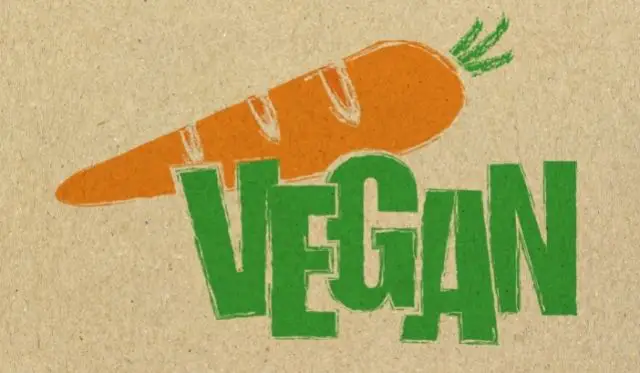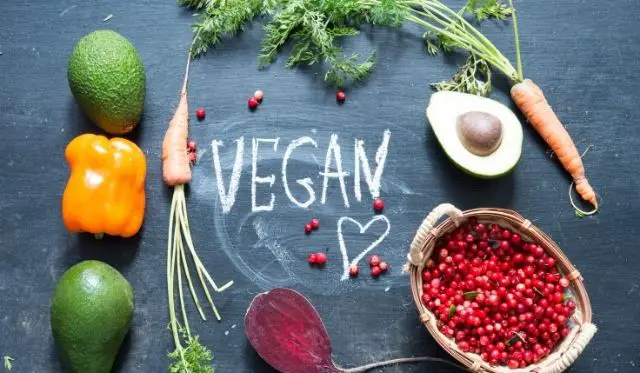Veganism has experienced a sudden burst in popularity. There are lots of videos and articles regarding the vegan lifestyle as many people share their experiences and challenges upon adopting the vegan diet.
These 20 facts will help you understand what veganism is all about, its benefits, impact, and many others.
1. What exactly are vegans?
A vegan is a person whose diet excludes meat, eggs, dairy, and any other animal-derived ingredients. A lot of vegans also do not eat foods that are processed using animal products, such as refined white sugar, chewing gum, honey, and some types of wines.
2. World Vegan Day
Vegan Day first occurred on November 1st, 1994. Its goal was to commemorate the 50th anniversary of the UK Vegan Society and the term “Vegan”. Along with celebrating the start of the Vegan Society, this day is an opportunity to promote the benefits of veganism in general. Each year, People organize festivals and exhibitions around the world. There are also many local events, talks, and cooking demonstrations organized by individuals.
3. How many vegans are there?
According to ‘The Economist’, when it comes to the US, in 2019, an intense transition from vegetarians to vegans has started and the number of vegans went up to almost 3.5%. One million of them – that’s approximately 0.5% – lead a pure vegan lifestyle. However, when it comes to the entire world, the approximate number of vegans is less than 1%. As of September 2020, the total number of vegans is approximately 78 million. But, the numbers continuously rise.
4. The health benefits of a vegan lifestyle
The vegan diet tends to be rich in fiber and low in protein, salt, calcium and cholesterol. Studies show that this can improve one’s overall health. According to some sources, this diet can reduce a person’s cancer risk by 15%. Research also suggests that this type of lifestyle has benefits regarding heart health and lowers the risk of type-2 diabetes. Adopting a vegan diet can also lead to weight loss.
5. Gender prevalence
In 2015 in the UK, the Vegan Society found that twice as many women as men were vegan. When it comes to other countries, statistics show a significant female prevalence regarding this lifestyle: 79% of vegans in the US identify as female. One of the reasons behind this number is the relationship between animal rights and feminism. Activists in the past saw the refusal to eat meat as an addition to feminism. Another thing that also plays a role in this is the association of meat with a “male” food choice. A lot of men tend to perceive meat as something related to strength and health. Furthermore, they’re usually teased or receive a negative reaction from their peers when they tell them they’ve adopted a vegan lifestyle.
6. What does a vegan diet consist of?
As the name suggests, the vegan diet is based on vegetables, but not solely on it. Vegans also eat nuts and nut butters, as they’re a great source of iron, fiber, vitamin E, among others. The diet also contains grains, cereals, tofu and, obviously, fruits.
7. How long does it take to adapt to a vegan lifestyle?
When it comes to how long it takes to get comfortable with a vegan diet, there isn’t an exact number of days or months that can apply to absolutely everyone. Some people feel great immediately and continue to feel like that for the rest of their lives. However, in most cases, people tend to struggle. They may experience detox symptoms, such as headaches, fatigue, and irritability. Others may have no physical pain, but they could have mental and emotional challenges. The journey is personal; no one experiences the exact same thing.
8. Vegan etymology
Donald Watson, founder of the Vegan Society, coined the word vegan in 1944. He modified the word vegetarian, by taking the first and last letters of it and creating his own version of vegetarianism. His goal was to distinguish the people who don’t eat any animal products from those who only abstain from meat.
9. Age statistics
According to some panel surveys regarding vegans in the 21st century, 78% of panel members said that they went vegan between the ages of 16 and 34, with 52% between the ages of 16 and 24. The average age for turning vegan is 24.1, although the most frequent ages are 19, 20 and 21.
10. Reasons why people go vegan
One of the main reasons people choose to go vegan is to stop contributing to animal exploitation. Many vegans firmly believe that all animals have a right to life and freedom. Some people adopt a vegan lifestyle because they’re concerned about their health. The veganism significantly improves one’s health and prevents many diseases. Also, there are many people who go for a plant-based diet in order to help the save environment.
READ MORE: 20 Interesting Facts About Punk Music
11. Vegan celebrities
Celebrities play a huge role in the vegan movement, as they inspire many others to adopt a plant-based diet. Some examples of vegan stars are Beyoncé, Benedict Cumberbatch, Madonna, James Cameron, and Natalie Portman.
12. Types of vegan diets
There is a big variety of these diets. One of the most popular is “raw till 4”, which means that raw foods are consumed until 4 p.m., with the option of a cooked plant-based meal for dinner. There is also the Junk & Convenience Food Vegan Diet, which is based on heavily processed foods, such as vegan burgers, fries, soy ice cream and pretzels.
13. Veganism by country
According to 2019 data from Google trends, the biggest interest regarding the this word was found in the UK, followed by Australia, New Zealand, and Canada. Although this doesn’t guarantee that these countries are the ones with the most vegans, there is a high possibility that this is where some of the world’s vegan hotspots are.
14. What are the risks of veganism?
When following a vegan diet, people can develop some health problems, such as vitamin and calcium deficiencies. Iron is also less easily absorbed from plant-based foods, so vegans need to make sure that they include foods such as wholemeal bread and dried fruits. There’s also a possibility that vegan diets lead to a choline crisis – a nutrient that’s important for brain health and other functions, found in meat and poultry.
15. How many animals does a vegan save?
Using a vegan calculator, it was estimated that the average person who goes vegan for just one month can save the lives of 30 animals, which is basically the equivalent of an animal per day.
16. Veganism’s environmental impact
Besides saving many animal lives, a veganism lifestyle has a positive impact on the environment too. By going vegan for a month, a person would also save 620 pounds of harmful carbon dioxide emissions, 913 square feet of forest, and 33,481 gallons of water.
17. Is a vegan diet recommended for kids?
If the parents have a well-planned, nutrient-rich diet for their children, then the answer is yes. However, there’s a high risk of vitamin D, vitamin B12, calcium, iron and omega-3 fatty acids deficiency, so parents need to be very well informed.
18. Vegan clothes
Besides food, vegans also pay attention to the clothes they’re wearing, to make sure they don’t contain any animal materials. Besides fur, wool, and leather, vegans also don’t buy silk clothes (as silk is extracted from boiling silkworms), cashmere (made from goat hair), suede (made from animal skins).
19. The 22-day vegan challenge
The 22-day vegan diet is one of the most famous challenges regarding veganism. The eating plan gained popularity thanks to social media as celebrities such as Beyoncé, Jay-Z, and Jennifer Lopez have talked about it. For lots of people, this diet represents the first step towards a vegan life.
20. Veganuary
Veganuary is a UK nonprofit organization founded in 2014. Its goal is to inspire people to go vegan for January. Veganuary works with businesses to drive up veg-food options in shops and restaurants and has convinced almost 1 million people to join the challenge.
Going vegan is could be one of the biggest challenges we might want implement in our lives, especially now, when the Earth needs our help. Furthermore, thanks to its several health benefits, veganism teaches us that when we’re focused on helping others, we’re automatically improving our own life too.
Sources: Days of the Year, The Spruce Eats, WTVOX, BBC, Medical News Today, EuroNews Living, Healthline, Happy Herbivore, Etymonline, Dictionary.com, Imaner Consultants, CNET, Good Housekeeping, Nutriciously, Future Kind, Insider, WebMD, Veestro, BBC Good Food, Veggie Visa, Food Network, Veganuary, Wikipedia




